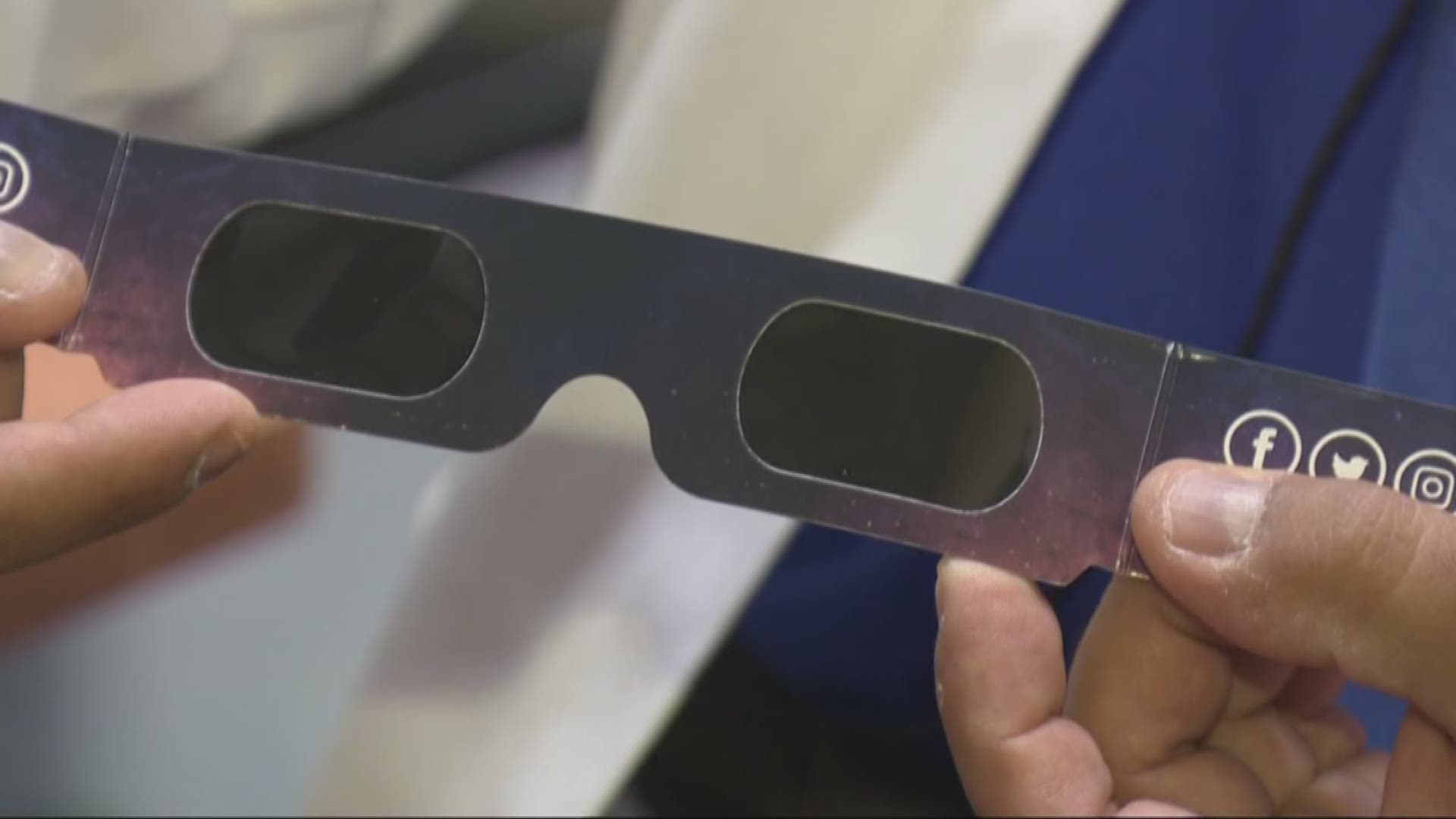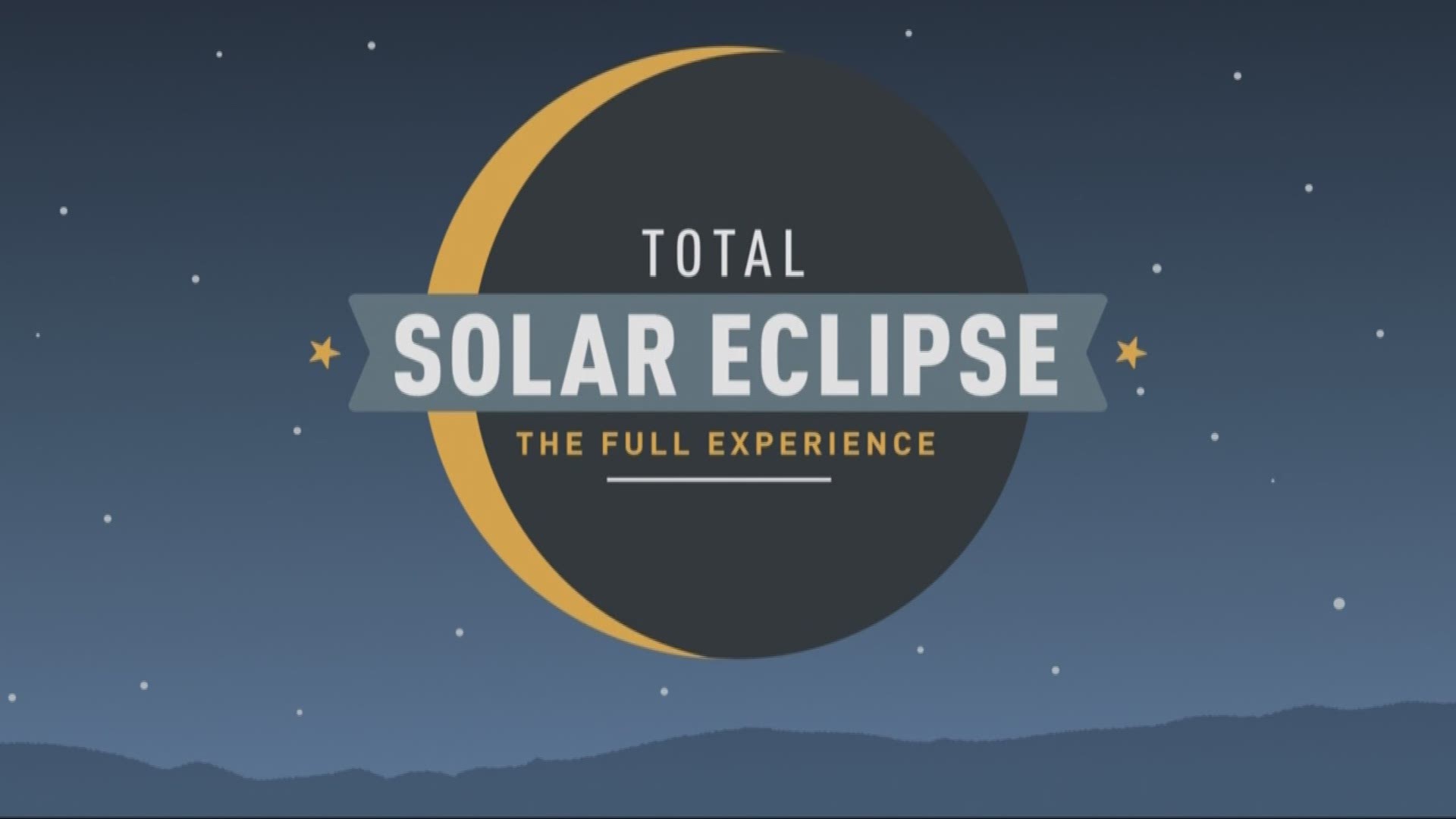Most people assume those eclipse glasses you pick up at the store, or order online, are safe. We wanted to verify exactly how to know that.
Eclipse glasses should have a specific ISO (international standards organization) certification, with number 12312-2. But some counterfeit glasses show that certification, which prompted Amazon to recall many eclipse glasses the company said it could not verify were safe.
KGW talked to Dr. Rick Fienberg from the American Astronomical Society. Fienberg created the AAS list of verified eclipse glasses sellers and manufacturers. He said some legitimate products were caught in the Amazon recall.
Fienberg said customers should purchase eclipse glasses from a verified manufacturer and seller. That way, you know the seller and manufacturer are not selling bogus products.
KGW took three different pairs of eclipse glasses to Dr. Lorne Yudcovitch, a professor of optometry at Pacific University, to verify if they're actually safe for your eyes during a solar eclipse.
Dr. Yudcovitch says look closely, and there should be ISO number 12312-2 printed on them. It's the number scientists around the world have collectively deemed strong enough for that lens to keep you safe during an eclipse.
He looked at the first pair we brought. "This one does have the ISO logo, and says that it's certified and there is a number on here that says ISO 12312-2 which is the certification for eclipse glasses," said Dr. Yudcovitch.

The lenses themselves need to be in perfect shape also. We stopped into a grocery store that's selling them for $1.99, and found they had the required ISO number 12312-2, but most pairs for sale were bent or scratched.
Dr. Yudcovitch says don't wear scratched glasses. Those defects can damage your eyes.
How the sun damages your eyes
Dr. Yudcovitch showed us several retinal scans of patients who have damaged their vision by looking at the sun.
"This person did stare at the sun and has damage to the rods and cones in the fovea. This may heal in some people or may be permanent in some people," he said.
The fovea is the part of your eye that is the most responsible for 20/20 vision.
"Some people say, 'What if I just briefly look at it just for a split second and then look away?' Well, the potential for permanent damage is fairly low. But even a brief second looking at the sun can, in some cases, depending on the individual, cause a permanent damage to the fovea and the fovea is the very center of the retina," Dr. Yudcovitch said. "The damaged spot might not be visible right after you look at the sun. In fact, most of the time it happens hours to weeks to days after, where they'll start to notice a permanent spot."
The lenses are made of a kind of mylar, or aluminized material. And KGW verified, it's so special to solar eclipses, you can't duplicate it with dark glasses, or anything else.
"You might hear people say 'Can I look through a potato chip bag that has aluminum in it? Is it solid? Can I see through it?' No it isn't. Some people have asked, 'Can I look through a CD or a DVD, is it protective enough?' Really interesting things we've been asked. And those are not protective things to look through," he said.
One pair of glasses we brought Dr. Yudcovitch didn't pass the safety test. There was no text on them saying any kind of ISO number or website about the manufacturer. They were essentially blank.
"This eclipse viewer does not have any ISO certification at all so I would question whether this one is legitimate and if it's effective in protecting my retinas from the solar rays."
Follow-up questions
Following our initial story, viewers had more questions about eclipse glasses that we have verified:
Q: Can you use binoculars with eclipse glasses?
A: No. Do not look at the eclipse through an unfiltered camera, telescope or binoculars. The concentrated solar rays will damage the filter and enter your eyes, causing serious injury. There are special solar filters you can buy to look through lenses. Make sure those manufacturers and sellers are verified through AAS or NASA.
Q: Can eclipse glasses be worn over regular glasses?
A: Yes. Put them over your glasses or hold your handheld viewer in front of them.
Q: Can you test eclipse glasses by looking at an incandescent bulb?
A: No. If you can only see the filament in an incandescent clear bulb, the glasses may be safe. But Dr. Fienberg from AAS said other types of light that harms your eyes, including infrared light, could still get through. The only way to know your glasses are safe are to verify both the manufacturer and seller are AAS or NASA-approved.
Links:


